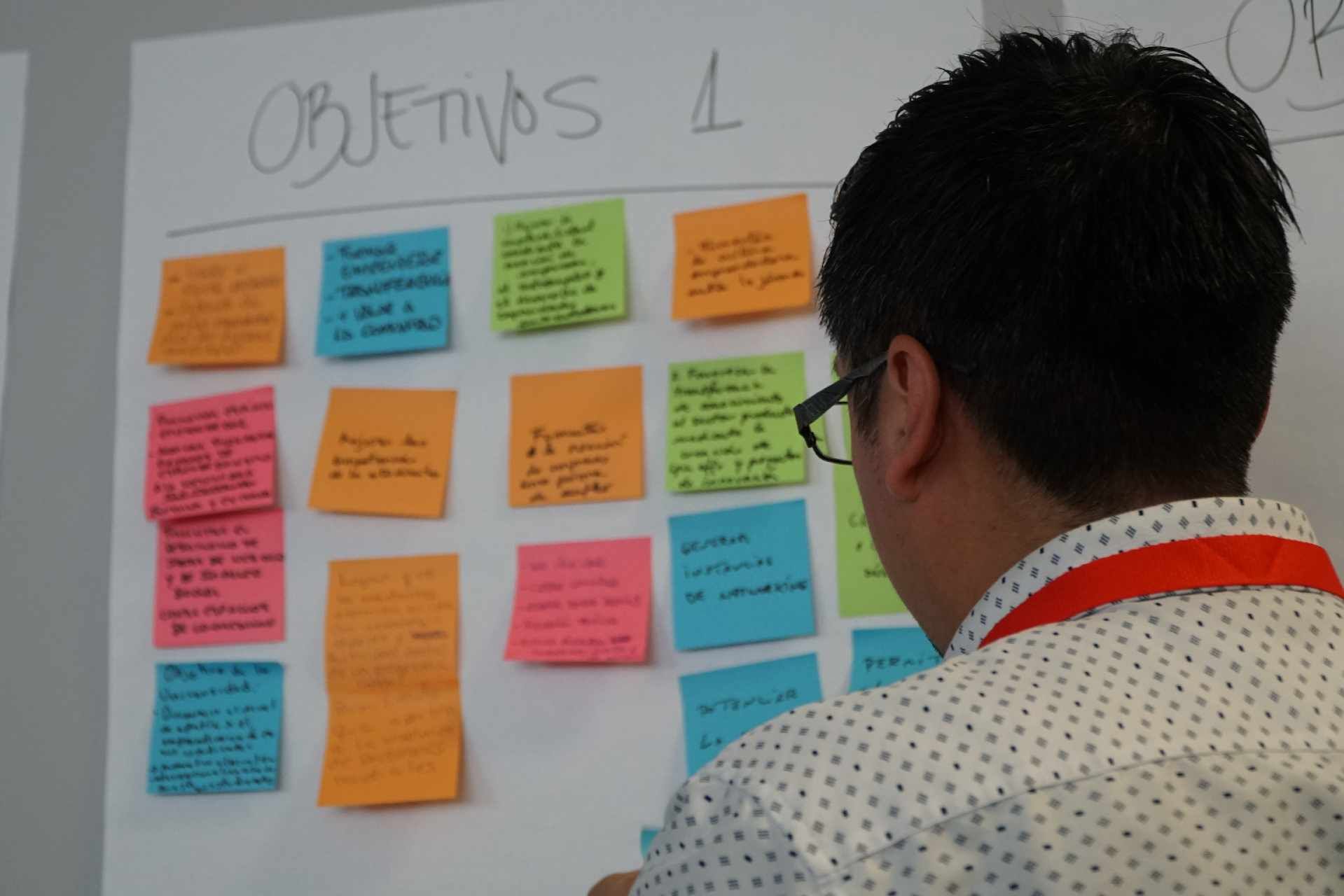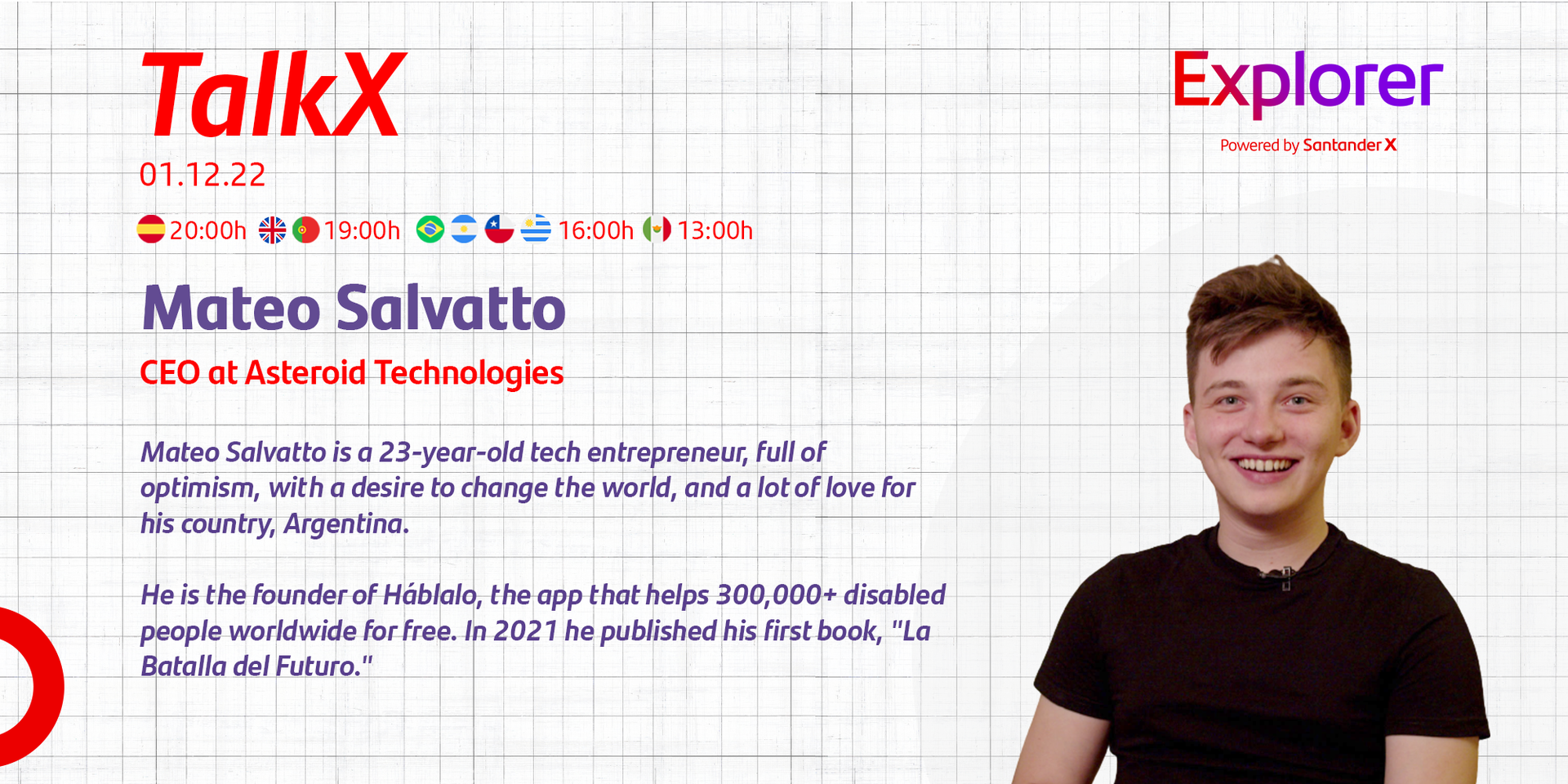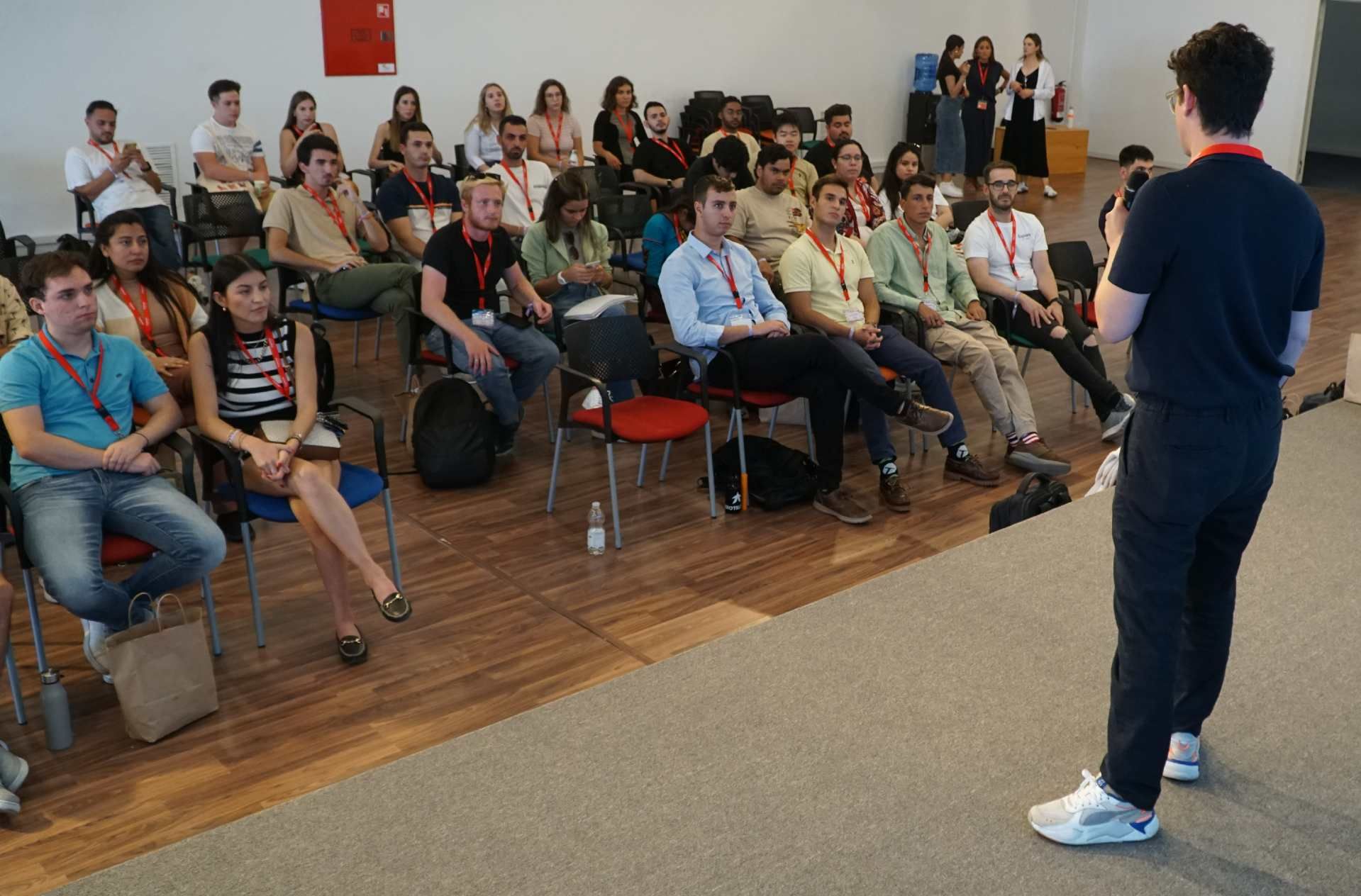12/15/2023
TalkX
10 minutes of reading
Why does Mara Zepeda has a photo album called "Moments When I Truly Felt Alive"?
Authors
- Santander X Explorer
Categories
“Every day counts, and it’s crucial to surround yourself with what makes you feel good, alive. If you don’t know what it is, investigate. I have a photo album on my phone called ‘Moments When I Truly Felt Alive.’ When I’m losing focus at work, I look at it. Every minute of every day, you have the opportunity to connect with your inner child, with things you truly love. You can paint, knit, anything that takes you away from the computer screen and compels your hands to create something with purpose. Find those rituals; they will bring you back to earth.” That’s the advice Mara Zepeda, co-founder of Cola love and Zebras Unite, would give to her younger self. It’s also the most repeated tip from the TalkX she gave as part of the current edition of the Santander X Explorer programme.
In addition to seeking what makes you feel alive, Mara also recommended, almost as a second mantra, questioning what the terms you include in the questions you are concerned about mean to you. How can entrepreneurship have a significant impact? Before that, you need to know what your definition of “meaningful impact” is. What should a woman consider when setting up a business? “Start by determining what it means to you to be a woman and then look for women who share your vision. Are you getting it?
The importance of community
The need to find others with whom to build a community is the third pillar of all her lessons; Mara grew up in an environment where collectivity was very present: “I grew up surrounded by artists, and they solve problems from a creative perspective. They also tend to build communities naturally. My parents taught me how to do both by also providing a service to others. “Life taught me that you can solve complex problems through art“, she adds.
Interestingly, she recommends starting in entrepreneurship by addressing “very basic human needs: food, housing, childcare, or care for the elderly, health. Jonathan Harris, one of my mentors, talks about ‘circles of care’: you have to start with your well-being and then move outward, toward those closest to you. From that circle, you move to the community and then to a larger network. Everything you do will be a representation of the strengths or weaknesses of the core, so investing in yourself, in that center, will help you build better products and services,” she explains.
The sense of community will not only work wonders with your customers but also within your startup: “Community is immunity. If you surround yourself with people who make you better and whom you can improve, you will create the social benefits we want in the company. To start, think about what role or roles you can play in a community. And to improve the distribution of work, experiment to find the unique skills each person excels in. In communities, it’s important how we empower people to be leaders, that people see their contributions recognized. This is only achieved if they have seen it in other people in that environment,” she assures. It’s not possible for someone to carry all the responsibility; that causes the famous (and dreaded) burnout and is not sustainable. “Community is sharing that responsibility, and members share their skills,” Mara adds.
“You have to ask yourself, ‘What makes me feel alive?’ The process is the product; if you are completely blinded by being in front of the computer for eight hours a day, everything you create in life will be a reflection of that dissociation, that lack of roots. There are ways to find the path to what is important to you.”
How to apply journalism to entrepreneurship
Is there a fourth leg to this table? Yes, questions. Mara studied Journalism and worked in the Economics section during the 2008 crisis. “That made me see that we had to rebuild the system from scratch, based on principles and ideas that worked for everyone,” she explains.
But beyond that, she learned the value of asking the right questions. “Journalism teaches you to research like a researcher, ask great questions, makes you a better listener, and inspires your curiosity.” You may not know how to start a marketing business, for example, but you can inquire about what you don’t know. And here’s a fundamental piece of advice: “Ask Chat GPT. Consider artificial intelligence as your business therapist; it will give you a raw idea of the answer. Then, engage with people who are specialists in the area you’re interested in, from whom you can learn,” she says.
“It may sound strange, but I recommend that if you’re starting your entrepreneurial journey, look for resources in journalism; they will help you change your perspective. Humility, curiosity, and being a person who inspires trust are the keys to being a good journalist and also apply to entrepreneurship,” Mara comments. Empathy and listening are very beneficial skills: paying attention to your team, on the one hand, and to your customers, on the other, about what they find most valuable or aspects of the product they would like to improve will be very useful.
“The size of the solution doesn’t have to match the size of the problem.”
This is the advice from our guest at the TalkX when we asked how to grow. “It’s not just about going up; it’s about deepening, seeing how much you learn. A sunflower doesn’t grow exponentially; Nature has limits, and we must accept them. We have to question the sustainability of scaling at all costs and look at more organic models. Growing all the time and at any cost is not natural,” she adds.
In any case, progression can be measured, and for that, Mara recommends Nora Bateson’s work on warm data. “For example, having a conversation with another person, we are already learning something together, and that, in itself, is a measure,” explains this social entrepreneur with a smile.
All this is well and good, but we haven’t talked about the beginning yet, about starting somewhere. And you may have several ideas for entrepreneurship, so how do you choose one? Wait a moment… Do you have to choose only one? “I recommend doing them all at once. For three weeks, talk to people who have the problems you’re trying to solve, listen to what they say about their needs. At the end of those three weeks, you will feel great relief because you won’t have had to choose just one thing, and you’ll say, ‘I have three hunches, one and two are interesting, I’ll set aside the third for now.’ You may find that your projects talk to each other and you may even come up with a fourth business idea that is more holistic and synthesizes the rest. We need people who are able to think across industries and disciplines, who can combine them and who have a broader view of the ecosystem. We need entrepreneurs who have a holistic perspective,” he adds.
And if things don’t go as expected, remember one of Mara’s and the entrepreneurial world’s most important mantras: “There are no mistakes, only lessons“.



